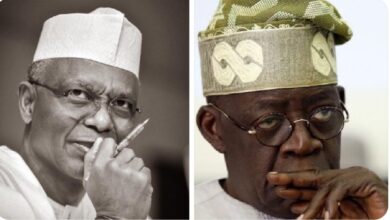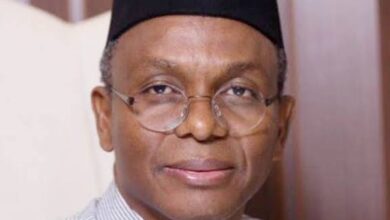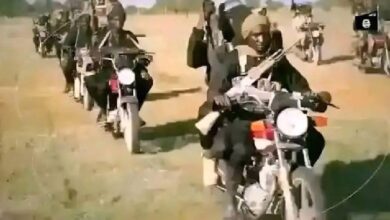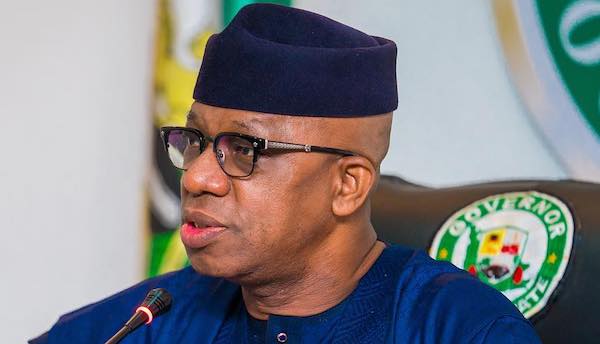West African leaders lift economic sanctions on Mali
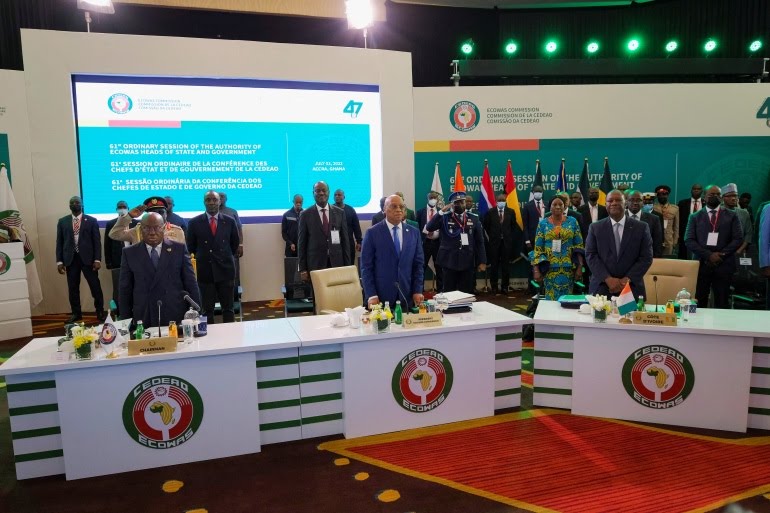
Leaders from the Economic Community of West African States (ECOWAS) gathered to assess efforts to secure timetables for restoring civilian rule in Mali, Guinea and Burkina Faso.
Leaders of the Economic Community of West African States (ECOWAS) have lifted economic and financial sanctions imposed on Mali, after its military rulers proposed a 24-month transition to democracy and published a new electoral law.
The bloc imposed stiff sanctions on Mali in January after the military government said it would not organise democratic elections the following month as initially planned.
ECOWAS Commission President Jean Claude Kassi Brou told a news conference on Sunday that the sanctions will be lifted immediately. Borders with Mali will reopen and regional diplomats will return to Bamako.
“However, the heads of state decided to maintain individual sanctions, and the suspension of Mali from ECOWAS, until the return to constitutional rule,” Kassi Brou said.
The individual sanctions targeted members of the ruling military government and the transitional council.
Sanctions have crippled Mali’s economy, raising humanitarian concerns amid widespread suffering. The country has defaulted on more than $300m of its debt due to the sanctions, which cut it off from the regional financial market and the regional central bank.
The ECOWAS mediator in Mali, former Nigerian President Goodluck Jonathan, visited the country last week. A member of his entourage told AFP news agency that Mali had made “enormous progress”.
Mali’s top diplomat Abdoulaye Diop on Friday said the recent political developments were moving the country towards a lifting of the sanctions.
Burkina Faso and Guinea transitions
ECOWAS leaders had gathered to assess efforts to secure timetables and other guarantees for restoring civilian rule in Mali, Guinea and Burkina Faso.
Mali underwent coups in August 2020 and May 2021, followed by Guinea in September 2021 and Burkina Faso this January.
The West African leaders meeting in Accra also accepted a pledge from the military that seized power in Burkina Faso to restore constitutional order in 24 months.
Kassi Brou said that after a lengthy discussion with the coup leaders in Burkina Faso, a new proposal for a 24-month transition was more acceptable, after the heads of state rejected a proposed 36-month transition.
Economic and financial sanctions on Burkina Faso were also lifted, he said.
The situation appears more complex in Guinea, whose military government has refused an ECOWAS mediator and announced a 36-month transition – a period that African Union Chairman and Senegalese President Macky Sall has described as “unthinkable”.
ECOWAS leaders rejected the three-year transition. They told Guinea’s military to propose a new timeline by the end of July or face economic sanctions.
The heads of state appointed Benin’s former President Boni Yayi as a new mediator and urged the Guinean military government to work with him and quickly propose a new timetable.
“Beyond that, economic sanctions will be imposed,” Kassi Brou said.
The political upheaval came as many observers started to think that military power grabs were a thing of the past in West Africa, an increasingly restive region that also faces growing danger from armed groups.
Some leaders who spoke at Accra’s one-day summit urged action as armed groups expand their footprint in the region.
“These terrorist attacks are now not only focusing on the Sahel, but also expanding to the coastal states in our region,” said Ghanaian President Nana Akufo-Addo. “It is imperative for us to continue to implement our regional action plan against terrorism and to coordinate our various security initiatives.”
In the first half of 2022, the region recorded a total of 3,500 deaths from 1,600 attacks targeting countries including Togo, Burkina Faso, Niger and Nigeria, according to Kassi Brou.
In Burkina Faso, where attacks blamed on armed groups are soaring, gunmen killed at least 55 people in the country’s northern Seno province last month.


